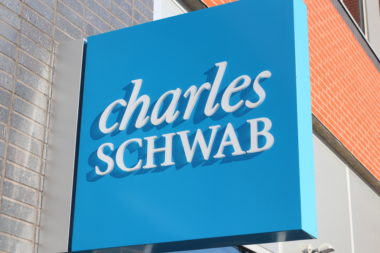There are two types of interest-bearing accounts that are among the most popular: the money market account and the savings account. While the two accounts act inherently as the same type of interest-bearing principle, it is important to do your research and find the right type of bank account that addresses your specific needs.
Table of Contents
What Is a Savings Account?
A savings account is an FDIC-insured bank account that allows users to deposit money and earn small amounts of interest over time. The deposits are intended to be saved and left alone, unlike checking accounts, which are intended for unlimited transactions. Additionally, savings accounts impose limits on transaction frequency; account owners may only withdraw from the account six times in a month.
What Is a Money Market Deposit Account?
A money market deposit account is a bank account that allows users to deposit money that earns a small amount of interest over time. It is FDIC-insured and merges the benefits of a savings account and a checking account. The account holder deposits funds into the account and the bank then invests the money in money markets.
A money market deposit account is not to be confused with a money market fund, which is a type of mutual fund rather than an interest-bearing account. The interest gained from money market deposit accounts depends directly on the money market, and how well the market is doing as a whole.
Money Market Examples
- Treasury Bills
- Certificates of Deposits
- CD’s
- Repurchase Agreements
- Short-Term Tax-Exempt Funds
- Commercial Paper
- Federal Agency Notes
The Difference Between Money Market and Savings
The main difference between the two types of interest-bearing accounts is the minimum amount required to open and maintain the account. Another difference between the two is the amount of interest they may yield. Some banks may have other terms leading to differences specific to that bank’s accounts, but the terms are a case-by-case basis.
Interest
Savings accounts yield a lesser amount of interest between the two accounts at 1%. Money market deposit accounts yield a higher amount of interest between the two accounts at 1.5%.
Checks
Savings accounts typically have no card or checks tied to the account, although some banks offer ATM access with savings accounts. The majority of transactions for savings accounts will be made through a money transfer to a checking account or by withdrawing directly from the bank tied to the account. Money market deposit accounts allow account holders to write checks as well as utilize an ATM, but also at the rate of six transactions per month.
Minimum Balance
While both accounts require some sort of balance to open, money market deposit accounts require a much higher minimum balance. Savings accounts typically require very little to zero funds to open, while money market deposit accounts have a minimum balance ranging from $2,500 to $10,000.
Fees and Penalties
A savings account may have an initial account opening fee depending on the bank. Both types of accounts allow for only six total transactions within each month, which are regulated by the Federal Reserve. If more than six total transactions occur within a month the bank may assess a fee, but the account may also be closed or regenerated as a checking account. Both accounts, although different, have a minimum balance required that will likely incur charges if the account balance dips below the required amount. Banks will likely also continue to charge until the amount is at or above the balance that is required.
Choosing Between Money Market vs. Savings Accounts
Savings accounts are a great option for shorter objectives — attainable within a year or two — or for holding as an emergency fund. Since savings accounts require a smaller minimum balance and yield lower interest they are better utilized as a deterrent for spending rather than to reach long-term investment or savings goals. Money market deposit accounts are a more viable option for medium- to long-term savings. As long as the balance minimum is met and maintained, the benefits of the interest they’ll yield are much greater than those of a savings account.
Image Source: Deposit Photos





